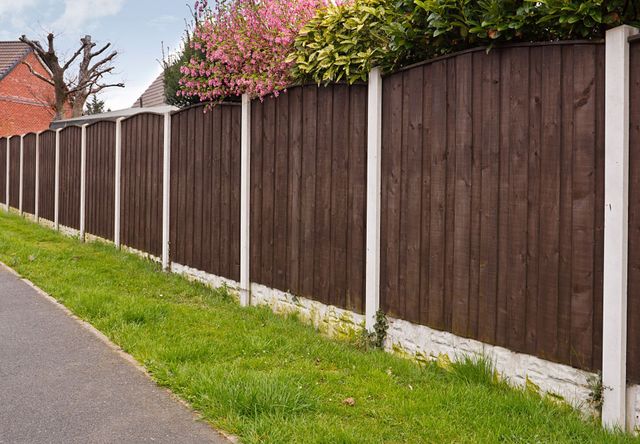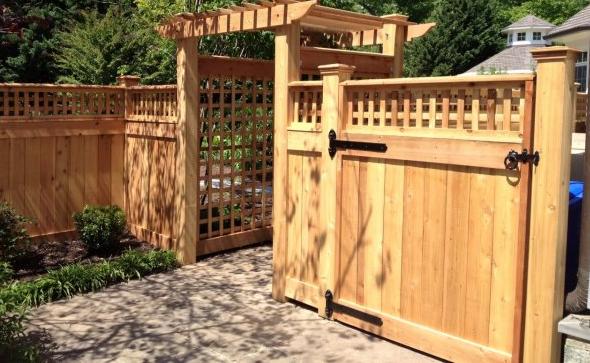All Categories
Featured

When preparing a brand-new fence for your home, it's simple to focus on the fundamental prices-- products, installment, and labor. Here's a guide to some of the most common surprise prices to consider when budgeting for your fencing job.
- Allow Fees and Legal Requirements. Before you begin excavating, it's important to check if your area requires an authorization to install a fence. Several communities have zoning legislations that regulate fence placement, height, and material, specifically if you're building near a residential property line or in a community with a House owners' Association (HOA) These policies make certain the fencing meets neighborhood standards, however they also come with connected expenses.
Cost variety: $50 to $500, depending on your location and the intricacy of your task. 2. Fence Removal and Disposal. , if you're replacing an existing fence, removal and disposal of the old structure is an added expense that can easily be forgotten.. Fence removal commonly involves disassembling the old fencing, transporting away the products, and throwing away them appropriately. Disposal costs can differ, particularly if the old products require unique handling, such as treated timber or metal.

Expense variety: $2 to $10 per direct foot for elimination and disposal, relying on the products. 3. Land Prep Work and Excavation. If the land where your fencing is being set up is uneven, rough, or covered in plants, it might need to be removed or leveled. Grading or excavation prices can add to your complete project costs, specifically if you're installing messages in hard-to-dig soil.
Cost range: $300 to $2,000, depending upon the site's problem. 4. Utility Line Recognition and Modifications. Prior to digging, it's vital to ensure that no underground utilities, like water, gas, or electrical lines, will be interrupted throughout the setup. A lot of service providers will certainly get in touch with utility companies to note these lines, yet there can be extra prices if changes are required to stay clear of harmful existing facilities.
Expense array: $100 to $500, relying on whether adjustments are needed. 5. Custom-made Qualities and Upgrades. While your standard fence might include common products, you may want to add custom-made features like entrances, decorative panels, or integrated lights. Automatic gates or protection systems are particularly pricey and need specialist installment. Adding these bonus raises the complete price of your fencing, so make certain to factor them into your spending plan.

Cost array: $100 to $1,500+ for entrances or attributes, relying on dimension and intricacy. 6. Distribution and Transport Expenses. Depending on where your products are sourced, you may be charged a different delivery fee for transferring the fence products to your residential or commercial property. This is particularly usual with hefty or large orders, such as wood panels or steel secure fencing. Distribution prices can likewise differ based upon the range between the vendor and your area.
Cost variety: $50 to $300 for distribution, depending upon distance and the amount of products. 7. Maintenance Prices Gradually. Many sorts of fences, particularly wood fencings, call for continuous maintenance to remain in great problem. Routine jobs like staining, sealing, and cleaning will certainly help lengthen the life of your fencing. Some materials, such as plastic or metal, may be much more low-maintenance however can still incur costs for fixings or replacements if damaged.
Yearly expense array: $50 to $300 for upkeep, depending upon product and climate. 8. Weather Hold-ups. Mommy Nature does not always accept your timeline. If your installation is delayed by negative weather, such as rainfall or extreme heat, you might encounter additional labor prices if workers need to go back to finish the job at a later time. Hold-ups can also extend the project timeline, pressing back when the fence awaits usage.
Price variety: Variable, depending upon the length of time the hold-up lasts. 9. Property Line Disputes. Setting up a fencing close to your residential property line can sometimes bring about disagreements with neighbors. If your boundary is vague, it may be needed to employ a professional surveyor to validate the building line prior to installment. This added action guarantees you won't accidentally elbow in on your neighbor's land, but it includes included prices.
Cost array: $400 to $1,000 for a residential or commercial property survey, depending on your location. 10. Dirt and Ground Conditions. Certain dirt types can provide challenges during installation. If your residential or commercial property has rough, compacted, or clay-based dirt, digging holes for articles can be a lot more challenging, needing specific equipment or even more time to finish. Harder ground problems may additionally require making use of concrete or other enhancing products for included stability.
Price variety: $100 to $500 for devices or additional labor. Final thought. Authorizations, website prep work, old fencing removal, utility changes, and custom attributes can all include up. By accounting for these concealed expenses, you can ensure that your fencing project remains within budget plan and is finished without unforeseen financial surprises.
Latest Posts
Take Advantage of Special Auto Repair Deals in Chicago at Montclare Auto Repair
Published May 31, 25
1 min read
Check Out the Greatest Auto Repair Discounts in Montclare, Chicago
Published May 26, 25
1 min read
Find Out Why Chicago Drivers Select Montclare Auto Repair for Reliable Service and Huge Savings
Published May 25, 25
1 min read
More
Latest Posts
Take Advantage of Special Auto Repair Deals in Chicago at Montclare Auto Repair
Published May 31, 25
1 min read
Check Out the Greatest Auto Repair Discounts in Montclare, Chicago
Published May 26, 25
1 min read
Find Out Why Chicago Drivers Select Montclare Auto Repair for Reliable Service and Huge Savings
Published May 25, 25
1 min read